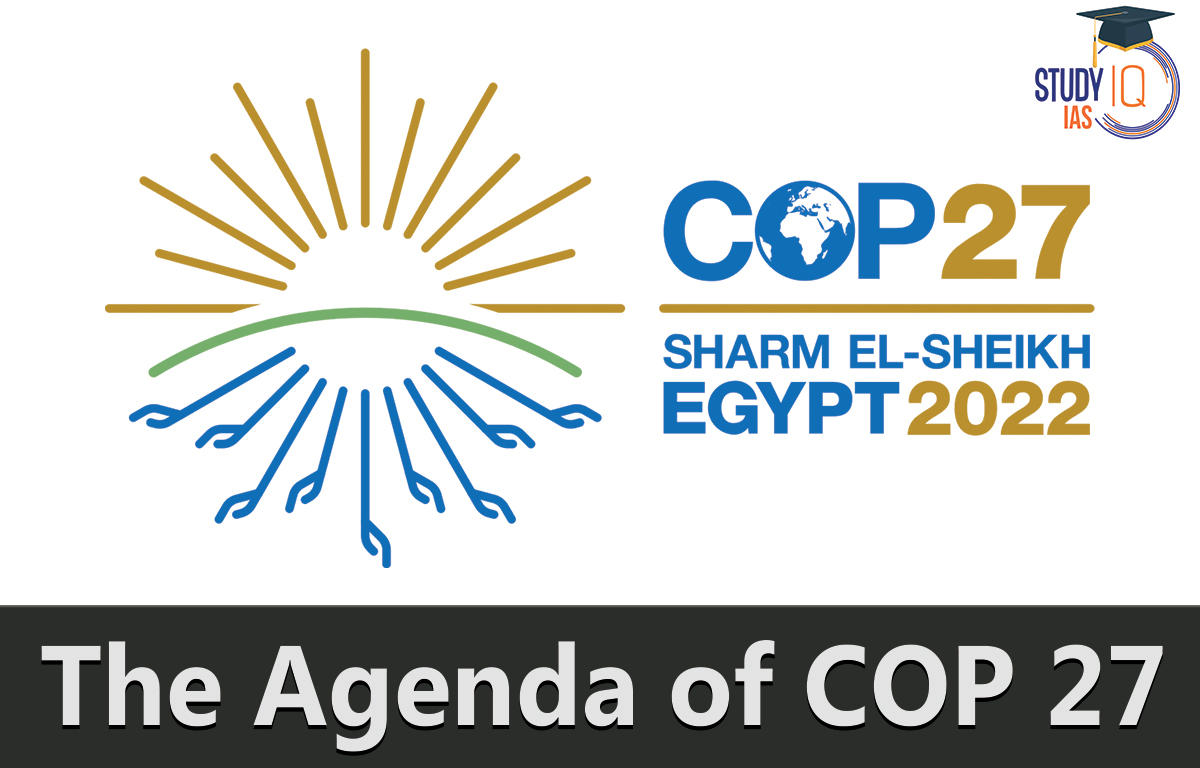| Item on the agenda |
Background |
At COP27 |
| Mitigation
(Reducing GHG emissions) |
- The world is not on track to achieve the Paris Agreement’s stated goal of limiting global temperature rise to 1.5 or 2°C.
- The latest NDC Synthesis report prepared by the UNFCCC finds that despite update to many country pledges (or NDCs), the world is still on track to cross the 1.5° C temperature threshold to about 2.1–2.9°C of warming by 2100.
- Also, the developing countries have raised concerns over the UNFCCC’s principle of equity. They viewed it as an attempt by developed countries to impose greater mitigation targets on all countries—rich and poor— rather than greater burden on historical emitters.
|
Hence, discussions and negotiations over more sincere mitigation pledges will essentially begin from scratch at COP27 in Egypt. |
| Global Goal on Adaptation
(Adapting to climate impacts) |
- The Global Goal on Adaptation (GGA) was established under the Paris Agreement with major support from the African Group of Negotiators to drive adaptation action.
- At COP 26, the Glasgow–Sharm el-Sheikh (GlaSS) work programme was established till 2023 to define the GGA and set up robust tracking mechanisms.
|
GlaSS workshops will take place at COP 27 as well, and there is hope that the discussions will advance equitable, locally led adaptation. |
| Climate finance
(Money for mitigation and adaptation) |
At COP 26 in Glasgow, developed countries noted with “deep regret” that the US $100 billion target of climate finance, first determined in 2009, has not been delivered and is expected to be delivered only by 2023. |
- Climate finance is expected to be a major issue at COP 27.
- In COP27, discussions will take place on a new goal beyond the US $100 billion, which will come into force from 2025, i.e. the New Collective Quantified Goal (NCQG) discussions.
- Issues that developing countries are expected to raise are greater ease in accessing climate finance, more finance in the form of grants rather than loans, and a push for more adaptation finance.
|
| Loss and damage
(Money for irreparable climate damages that adaptation cannot prevent) |
- At COP 26, the G77 and China negotiating bloc—representing 80 per cent of the world’s population—had united in their demand for a loss and damage (L&D) finance facility.
- The demand was pushed back by developed countries such as USA and Switzerland.
|
- Blocs like the Alliance of Small Island States (AOSIS) and Least Developed Countries (LDCs) pushed to have L&D added to the COP 27 agenda as a formal item for negotiation. This was backed by G77.
- Developing countries, especially small island nations, have a clear demand—the establishment of an L&D finance facility.
|
| Global Stocktake
(The report card) |
- The 2015 Paris Agreement provided for a five-yearly assessment of progress on climate pledges. Known as the Global Stocktake (GST).
- GST is the assessment process intended to understand how the world is doing on multilateral climate action, which areas need improvement, and where it is possible to ramp up ambition.
- The GST is important to hold countries accountable, but also to establish that the principle of equity and climate justice must prevail in the negotiations.
|
- The first GST commenced in 2021 and will conclude in 2023. COP 27 falls within the “technical assessment” period of the GST, which commenced this June in Bonn, where the First Technical Dialogue on the GST took place.
- The second meeting of the Technical Dialogue will take place at COP 27.
|






















 WhatsApp
WhatsApp